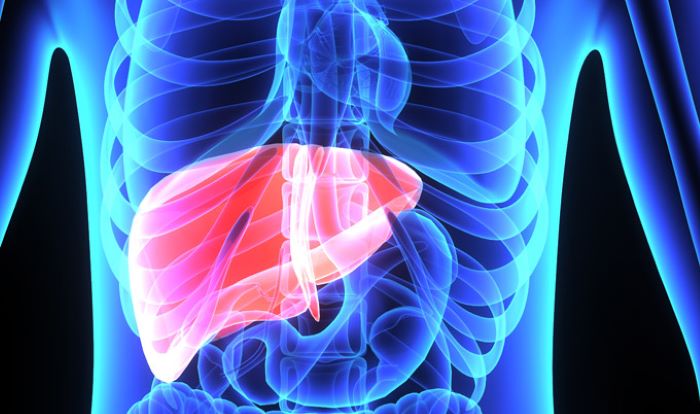Education
AI set to Revolutionise Organ Transplants

A pioneering new method to assess the quality of organs for donation has the potential to revolutionise the transplant system, saving lives and tens of millions of pounds.
The digital health package, which has received more than £1 million funding from the National Institute for Health and Care Research (NIHR), works in the same way as Artificial Intelligence-based facial recognition technology to evaluate the quality of an organ.
It is estimated the technology, known as OrQA – Organ Quality Assessment – could result in up to 200 more patients receiving kidney transplants and 100 more liver transplants a year in the UK.
Best treatment
It is hoped the OrQA software will be ready for a licensing study within the NHS within two years. There is also the possibility of marketing the tool worldwide.
Transplant surgeon Colin Wilson, Honorary Clinical Senior Lecturer at Newcastle University, is co-lead of the project.
He said: “Transplantation is the best treatment for patients with organ failure, but unfortunately some organs can’t be used due to concerns they won’t function properly once transplanted.
“The software we have developed ‘scores’ the quality of the organ and aims to support surgeons to assess if the organ is healthy enough to be transplanted.
“Our ultimate hope is that OrQA will result in more patients receiving life-saving transplants and enable them to lead healthier, longer lives.”
There are currently nearly 7,000 patients awaiting organ transplant in the UK. The waiting list for liver transplants has increased significantly since before the pandemic.
An organ can only survive out of the body for a limited time and, in most cases, only one journey from the donor hospital to the recipient hospital is possible, meaning it is essential that the right decision is made quickly.
A key part of the OrQA assessment is to look for damage, pre-existing conditions and how well the blood has been flushed out of the organ (organ perfusion). This is important as organs blocked with clots will not be able to connect to the recipient’s blood system during implantation.
Mr Wilson, who works at Newcastle upon Tyne Hospitals NHS Foundation Trust and is also General Secretary of the British Transplantation Society, said: “Up until now, we haven’t had anything to help us as surgeons at the time of organ retrieval.
“This is a really important step for professionals and patients to make sure people can get the right transplant as soon as possible.
“OrQA will help us professionals make the best decision at a really stressful time for all those involved in organ donation and transplantation.”
Exciting development
The project is being supported by NHS Blood and Transplant (NHSBT), Quality in Organ Donation (QUOD) biobank and an NIHR Blood and Transplant Research Unit to deliver research for the NHS. It involves academics from the universities of Newcastle, Oxford, and New South Wales.
Professor Derek Manas, Medical Director of NHSBT Organ Donation and Transplantation, said: “This is an exciting development in technological infrastructure that, once validated, will enable surgeons and transplant clinicians to make more informed decisions about organ usage and help to close the gap between those patients waiting for and those receiving lifesaving organs.”
‘Proof of concept’ work into the technology has been carried out in liver, kidney, and pancreas transplantation as well as at an advanced stage of pre-clinical testing in liver and kidney.
Chief Executive of the NIHR Professor, Lucy Chappell said: “Funded by our Invention for Innovation Programme, this deep machine learning algorithm aims to increase the number of liver and kidney donor organs suitable for transplantation.
“This is another example of how AI can enhance our healthcare system and make it more efficient. Once clinically validated and tested, cutting-edge technology such as this holds the real promise of saving and improving lives.”
Organ donation
In 2021/22, 41 percent of the population in the United Kingdom had ‘opted-in’ to the NHS organ donation register, which amounts to over 27.7 million people registered.
To register for the Organ Donation Register, click here
Health Minister Neil O’Brien said: “Technology has the ability to revolutionise the way we care for people and this cutting-edge technology will improve organ transplant services.
“Developed here in the UK, this pioneering new method could save hundreds of lives and ensure the best use of donated organs.
“I encourage everyone to register their organ donation decision. Share it with your family so your loved ones can follow your wishes and hopefully save others.”
Source – Newcastle University
-

 Auto2 years ago
Auto2 years agoHonda Marine Debuts All-New BF350 Outboard Company’s First V8 Motor Available Commercially, Flagship Model Offers Premium Power and Unparalleled Performance for Extraordinary Boating Experiences
-

 Auto2 years ago
Auto2 years agoNew Features Further Increase Desirability Of Bentayga Range
-

 Technology2 years ago
Technology2 years agoOracle Partners with TELMEX-Triara to Become the Only Hyperscaler with Two Cloud Regions in Mexico
-

 Auto2 years ago
Auto2 years agoHonda and Acura Electric Vehicles Will Have Access to Largest EV Charging Networks in North America Aided by New Agreements with EVgo and Electrify America
-

 Lifestyle2 years ago
Lifestyle2 years ago2023 Nike World Basketball Festival Brings the Best of Basketball Style, Culture and Community














